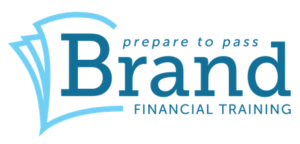For Professional Paraplanner’s TDQ (Training, Development and Qualifications) series, we have teamed up with key support providers, such as Brand Financial Training, to provide our readers with the very best in training, development and exam support.
This series aims to provide you with valuable advice and guidance materials to help you achieve your training goals, perfect your exam techniques and test your knowledge of the financial services market.
The following 10 questions, which can also be found in our June 2019 issue, relate to examinable Tax year 2018/19, examinable by the CII until 31 August 2019.
Questions
1. What is the general rule requirement under capital adequacy?
A. Depending on the size of the firm they must hold a prescribed level of capital
B. Depending on the firm’s activities and assumed levels of risk a prescribed level of capital must be held
C. All authorised firms must undertake detailed risk assessments to determine the level of capital they are required to hold
D. All businesses must be able to meet their financial obligations as and when they fall due
2. What are derivatives?
A. Financial instruments used to provide market stability
B. Specialist investments to provide increased speculative opportunities
C. Financial contracts whose value is derived from the value of an underlying investment
D. An instrument that allows investors exposure to underlying assets through direct ownership
3. In the event of a married couple both dying in a plane crash where it’s impossible to say who died first, what is the assumption of general law (Law of Property Act 1925) and what is presumed for the purposes of Inheritance Tax?
A. General law assumes the older life died first whereas for IHT purposes it is assumed they died at the same time
B. General law assumes the older life died first and for IHT purposes this is also the presumption
C. General law assumes they both died at the same time and this is also the presumption for IHT purposes
D. General law assumes they died at the same time and for IHT purposes it is presumed that the older life died first
4. Why might an employer decide to provide death in service benefits through a separate insured scheme as opposed to through a defined benefit scheme?
A. To maintain death in service benefits without draining the fund.
B. To treat the death in service benefits as an allowable expense.
C. If the employees were all below 45.
D. As the defined benefit scheme is fairly large.
5. Where a life assurance policy includes a critical illness benefit, which type of trust should be used?
A. Split benefit trust
B. Absolute trust
C. Flexible trust
D. Discretionary trust
6. Joseph and Rebecca have set up a trust for the benefit of their grandchildren. Which of the following Acts imposes a duty on them in their capacity as trustees to have regard to the need for diversification and suitability of investments?
A. The Trustee Act 2000
B. The Trustee Act 1925
C. The Trustee Investments Act 1961
D. The Trustee Investments Act 2000
7. A trade has been executed over the telephone by a member broker. When must the trade be reported to the exchange?
A. Within 1 minute of execution
B. Within 3 minutes of execution
C. At the end of automatic trading ie 4.30pm
D. By the time the LSE system finishes running ie 5.15pm
8. Which of the following types of care provision never needs to be self-funded?
A. Accommodation costs in an NHS hospital
B. Domiciliary care
C. Respite care
D. Residential care in a nursing home
9. For which of the following is a Home Reversion Plan likely to be most suitable?
A. Tina, who scrapes by on a limited income, lives in a valuable property and has no dependents, and is not concerned about leaving any of her estate to her wider family
B. Paul aged 71, newly remarried to Nancy aged 45 – they live in a jointly owned property which is expected to increase in value significantly in years to come
C. Debbie aged 66 who owns her own home and is in poor health with a relatively short life expectancy
D. Mick and Keith, both in their early 70s, who live in a property wholly owned by Keith – it is their only home
10. Richard has been advised that he does not need advice regarding his mortgage application. This is most likely because:
A. the funds are for residential purposes
B. he has worked in the finance sector for 6 months
C. he only requires a 50% mortgage
D. he has net income of £305,000






























